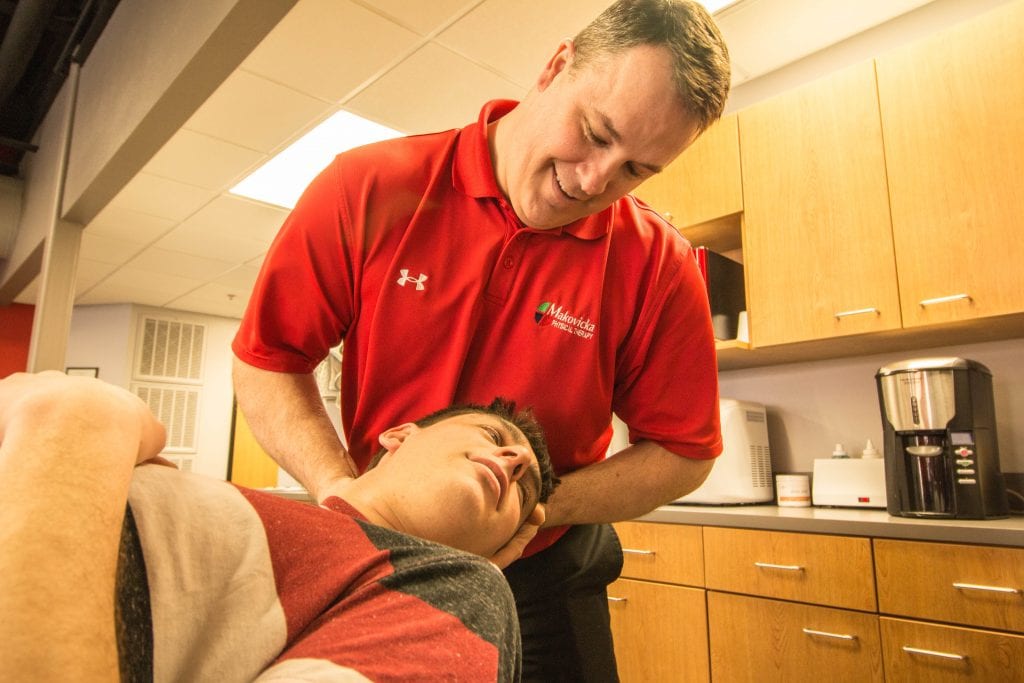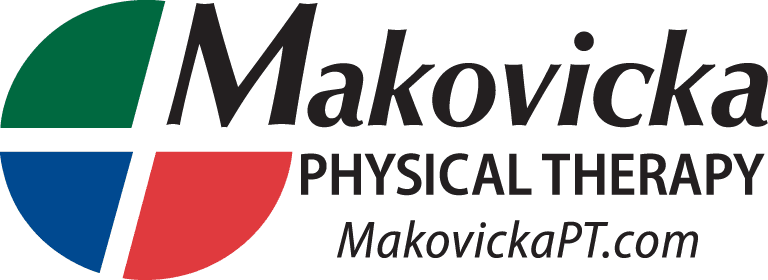
Conditions Treated
Low back and neck pain are common ailments for many people. Studies have shown that physical therapy is the most effective first step a patient can take in reducing or eliminating back and neck pain. At Makovicka Physical Therapy, our expert physical therapists will create a specialized physical therapy program to help decrease your pain, increase function and provide education and a home program to prevent any future recurrences.
- What does a therapy session look like?
At your initial evaluation, your physical therapist will first sit down with you and discuss your signs and symptoms to pinpoint what may be causing your pain. They will develop a personalized plan to decrease your pain and improve your mobility in order to reach the set goals that you and the therapist have developed together. Treatment may include modalities, manual therapy, and stretches and exercises all to help decrease your pain and improve your strength and mobility. Your progress will be monitored and tailored at each visit to keep you progressing towards your goals.
- Do I need imaging for my condition?
No. Research shows that getting an MRI within the first 6 weeks of the onset of back pain can actually increase your likelihood of having surgery, increase the chances of starting on opioid medication, and increase your initial health care cost and follow-up treatment cost. Research also shows that disc bulges are a “normal” part of aging and more than ¾ of people have non-painful disc bulges. So let physical therapy be your first step in controlling and potentially eliminating your pain and save you time and money in the long run.
- Is this a permanent condition?
No. Or at least it doesn’t have to be. Yes, once you have an injury at any area of the body, you can be at risk for future injury. But by attending physical therapy you can learn tools to decrease pain, maintain your improved strength and mobility, and prevent the risk of future injury.
Benefits of Spine (Neck and Back) Care
Faster rehabilitation/recovery
Improves chronic conditions thought to be permanent
May eliminate the need for surgery
Reduces the risk of further injury
Decreases the risk of opioid dependency
